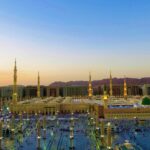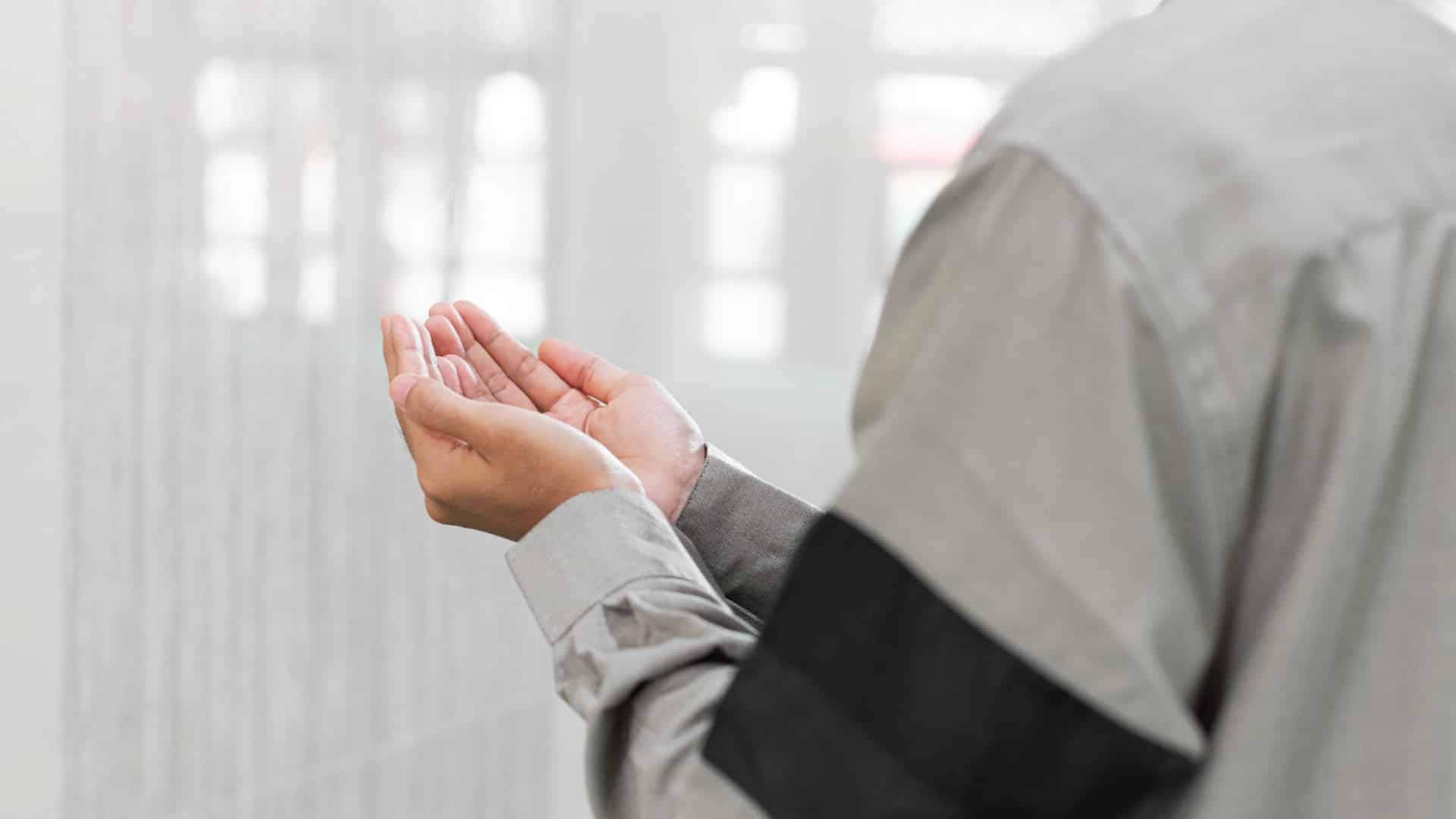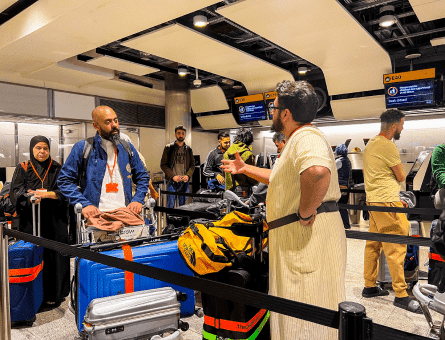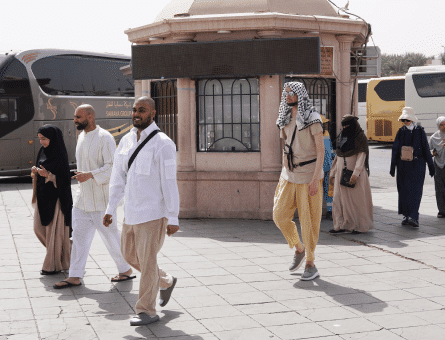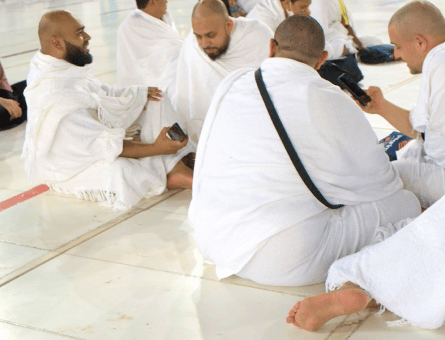3 Clear signs that your Hajj has been accepted
There are five tenets or pillars of faith in Islam, amongst which Hajj is the most significant.
Hajj isn’t just a religious obligation to be performed at least once by every Muslim who is physically and financially stable. It is a blessing as the person gets a chance to visit the Holy Kaaba (House of Allah SWT).
Allah SWT in the Holy Quran says,
After performing Hajj, when pilgrims return home, they feel spiritually refreshed as their sins are forgiven and they are handed a clean slate to begin a new righteous life. Prophet Muhammad (PBUH) said,
When a pilgrim returns from Hajj, the community and family members often have celebrations underway to welcome them home. They also congratulate them by adding the title of “Hajji,” (the one who has performed Hajj) to their names.
Do you want to know if your Hajj has been accepted or not? In this article, we will be discussing the three clear signs of an accepted Hajj.
What Are the 3 Signs of an Accepted Hajj?
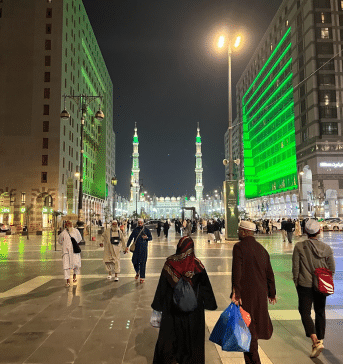
For your Hajj to be accepted, a pilgrim must have a pure intention of fulfiling the obligation for the sake of Allah SWT and should focus only on worshipping the Almighty while ignoring everything worldly.
Mentioned below are some signs that will let you know if your Hajj is accepted or not:
Sign 1 – A Righteous Life
One of the most prominent accepted Hajj signs is that on return from the House of Allah SWT, regardless of how sinful their past was, the life of a pilgrim changes from bad to good.
The person becomes punctual in fulfiling the commands of Allah SWT; they do everything to ensure that no prayer is missed.
The pilgrim’s inclination and love increase for the Hereafter, and they start doing everything to prepare for the next life.
Al-Hasan Al-Basari (RA) reported,
“The sign of this is to return (from Hajj) renouncing this world and aspiring to the Hereafter.”
Therefore, it is of utmost importance that even after returning from Hajj, pilgrims should watch over their actions, refrain from all acts of evil, and try to do good.
In order to maintain spirituality after completing Hajj, one may wish to place extra priority into praying additional sunnah prayers and frequent dhikr and Quran recitation until it becomes pure habit.
Sayyiduna Imam Muhammad Ghazali (RA) narrated that Prophet Muhammad (PBUH) said,
Sign 2 – Reward for the Hardships
Unlike other forms of obligations, the process of Hajj isn’t easy. Just like there are people who only talk about how amazing their experience of Hajj was, there are others who only talk about the hardships of the journey.
Prophet Muhammad (PBUH) has strictly guided a pilgrim to refrain from discussing anything negative about their expedition of Hajj.
Instead, pilgrims should talk about the greatness of the Islamic monuments, the Holy Kaaba, Masjid Al-Haram, and Masjid-e-Nabawi. They should also encourage other Muslims to fulfil the obligatory ritual of Hajj.
This is because in the grand scheme of things, all these hardships are insignificant, and Allah SWT rewards pilgrims abundantly in the form of blessings, mercy, and forgiveness.
Sign 3 – Sincerity of Intention
Even after the completion of Hajj, the sincerity of intention should remain in the heart of a true believer (Muslim). This means that even though people might refer to the pilgrim as Hajji, the person should have no wish to be called by that title.
It has been observed that many pilgrims also often like talking about their journey to Makkah, Saudi Arabia.
These people like being the centre of attention, being asked questions, talking about the charity that they gave to the needy and poor, the expenses that incurred in the way of Allah SWT, how they worshipped, explored new places, and most importantly, they love to act like they are the greatest Muslims.
All these acts are deceit from the Shaitan (Satan) to taint their faith and ruin their devotion without the person even knowing it. Therefore, pilgrims must ensure that they don’t talk about Hajj unless required.
However, in case a necessity arises, and they believe that their experience can help others, they have the leverage to discuss their journey but without showing off.
The journey of Hajj instils in a pilgrim’s heart the meaning of seeking refuge in Allah and the pleasure of attaining Divine propinquity
What Are the Rewards of an Accepted Hajj?
As a Muslim, you should know that an accepted Hajj is rewarded by Allah SWT in the form of blessings, mercy, and forgiveness. When asked about the rewards of an accepted Hajj, the Messenger (PBUH) of Allah SWT said,
3 Benefits of Going Hajj
Hajj is a basic pillar of Islam and an obligatory act of worship for every able Muslim. The followers of Islam have continued to perform Hajj since Prophet Ibrahim (AS) laid the foundation of the Holy Kaaba and Prophet Muhammad (PBUH) showed the Muslim Ummah the way to perform Hajj.
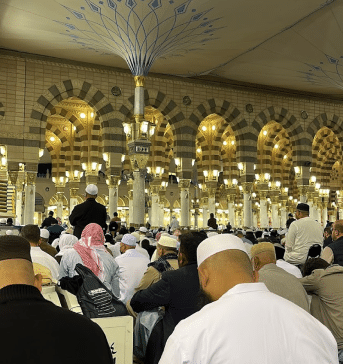
For most people, Hajj is a turning point in their lives. The journey to the House of Allah SWT not only purifies their hearts but it makes them better human beings.
Listed below are the three benefits of going to Hajj:
- Hajj Purifies Your Soul from Sins: A beloved companion of Prophet Muhammad (PBUH), Abu Hurairah (RA) narrated that, “Whoever performs a Hajj during which he neither commits sexual intercourse nor sins will return as sinless as a newborn child on the very day his mother delivered him.” (Al-Bukhari)
- Hajj Wipes Out Poverty: Ibn Masud reported that Prophet Muhammad (PBUH) said, “Perform Hajj and Umrah successively for they remove poverty and sins just as fire removes the impurities of iron.” (Al-Tirmidhi)
- Hajj Creates a Sense of Unity and Love Among Muslims: On the day of Hajj, people of all races, nationalities, and languages gather in the Holy Kaaba to worship Allah SWT. Prophet Muhammad (PBUH) said, “The Muslims; (the value of) their blood is equal, and the protection offered by the humblest of them is entitled to be respected by all of them, and they are all united against others.” (Ibn Majah)
What Is Hajj Mabrour?
The word “Mabrour,” [مَبْرُور] is derived from the Arabic word ‘بِرٌّ’ which means attaining closeness to Allah Almighty through an act of great virtue and obedience. Hajj Mabrour, or the “accepted Hajj,” has different meanings.
In one place, Prophet Muhammad (PBUH), when asked about the meaning of Hajj, Mabrour said, “Giving food and spreading peace.” In simpler words, Hajj Mabrour can be defined as a pilgrimage that is observed correctly, without any violations or deficiencies.
According to Islamic scholars, Hajj Mabrour is the pilgrimage in which a person refrains from sins, showing off, and pretentiousness for the rest of their lives. Hajj Mabrour is said to soften a person’s heart.
Aisha (RA) said,
What Is Hajj Maqbool?
Hajj Maqbool is the accepted pilgrimage for which a person attains full reward from Allah Almighty.
Once a person asked the beloved Prophet Muhammad (PBUH),
Summary – Signs of an Accepted Hajj
There are three prominent signs of an accepted Hajj in Islam. These include a righteous life, strengthened faith, and rewards from Allah Almighty.
However, to know for sure if your Hajj has been accepted, you must look within yourself and determine the influence of the pilgrimage (Umrah and Hajj) on your deeds, words, attitude, and heart.
Think about the good deeds that you have done in the previous ten days and keep doing them in order to prepare yourself for a better life in the Hereafter.
Explore The New Pilgrim App
The Ultimate App
for Hajj and Umrah!






